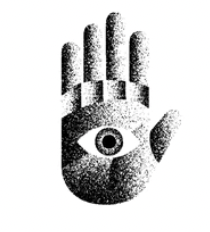Have you ever played a game where you look at something or someone, and then look away and try to answer questions about the scene that you so avidly studied?
I have.
I'm not bad at it either.
I used to play this game all the time with my brother - and I've mentioned this fact in another blog post. Don't worry, don't go looking for it, I'll share the relevant details here:
I was at lunch the other day with my brother. In case you are curious, we went to Five Guys Burgers, which offers the most splendid burger it has ever been my pleasure to ingest.
While we ate, I spotted a couple sitting together. I wouldn't have paid any attention to them, but I noticed that the man (who was in military uniform) had both of his feet locked securely behind the front legs of the chair.
This was a classic 'freeze' pose, initiated by the body's Limbic system in response to an uncomfortable situation. He was effectively like a mouse trying to freeze and hope that a larger, potentially dangerous predator didn't notice him.
This appeared to me to be completely at variance with the rest of the display put on by his upper body, as he was gesticulating and talking in what appeared to be a relatively comfortable fashion. So I began to pay closer attention.
I noticed that the young lady across from him smiled frequently, and would often run her fingers through her hair. However, when the man she was with got up to get the food, she rubbed her palms across her legs a few times. In addition to this, she had crossed her legs, blocking her body from his.
Running her hands through her hair was obvious grooming behavior and indicated attraction, but rubbing her palms on her legs was pacifying behavior. She was nervous. Her legs also indicated that she wasn't sure that she was comfortable with the man across from her.
A moment later, the gentleman returned with their food, and I continued my observations. I was surprised to see his feet immediately return to their prior locked position under the chair. My earlier observation was not a fluke - despite his confident display, he was definitely ill at ease.
However, as they talked, things gradually improved. She uncrossed her legs, instead resting one foot on its heel, toes to the sky. This signified that she was enjoying what she was hearing. On his part, he slowly but certainly moved his drink along the table toward her, metaphorically trying to become closer to her.
I weighed the data and decided that they must be on a first date. They each displayed signs of pacifying behavior, but each displayed signs of attraction. I mentioned this to my brother, whose response was "Go ask them."
I hesitated, not wanting to interrupt them, but in the end decided that I would.
I approached and introduced myself, explaining that I had been observing their various body language cues. I asked if they would be kind enough to verify if my conclusions were correct. They were good enough to participate.
I then went through what I had seen, along with the interpretation of each action, and they agreed with the accuracy of my analysis. They were indeed on a first date, and each admitted to being attracted to the other while being nervous to some degree.
It was a fun experience, and I was able to take my leave, confident that my actions also served to break the ice between them, allowing each to address the elephant in the room.
I'm sure that if I had stuck around, I would have witnessed more comfortable body language displayed by the pair.
So why do I bring this up? Why should you care?
The simple answer is because the anecdote above provides proof that real deductions can be made - ACCURATELY - by observation of the world around you. The trick is to know what to look for.
I recently read a few books by Ben Cardall.
In the field of Mentalism, he is, in my opinion, at the forefront of the deductionist subculture. He is one of a small group who are not satisfied to simply make their revelations appear both real and impossible. Instead, these men strive to genuinely read people in their surroundings and cleanly derive accurate conclusions. They'll take a shortcut when they need to, but they strive to minimize those moments.
They are looking for the real thing.
If you are too, you should check out Ben's work.
The Sherlockian is an excellent place to start and blends traditional methods with genuine data-mining for subsequent rational conjecture and feedback. Ben's advice here is Peter Turner-esque as regards his approach to reading a situation and presenting ideas with confident abandon while garnering credit at the appropriate moments. The Sherlockian is great place to start, but Smug Guesswork is a smorgaspord of excellent guidance. Though, sadly, the latter book is not available on this site.
When you read something like this, you begin to pick up threads that lead you to moments like the one I described with the young couple above - and your knowledge base is more robust and credible, with the result that what you do becomes more real with every passing day.
So, yeah...If that sounds good to you, then start with The Sherlockian and see where Ben's ideas take you.
Best,
Atlas